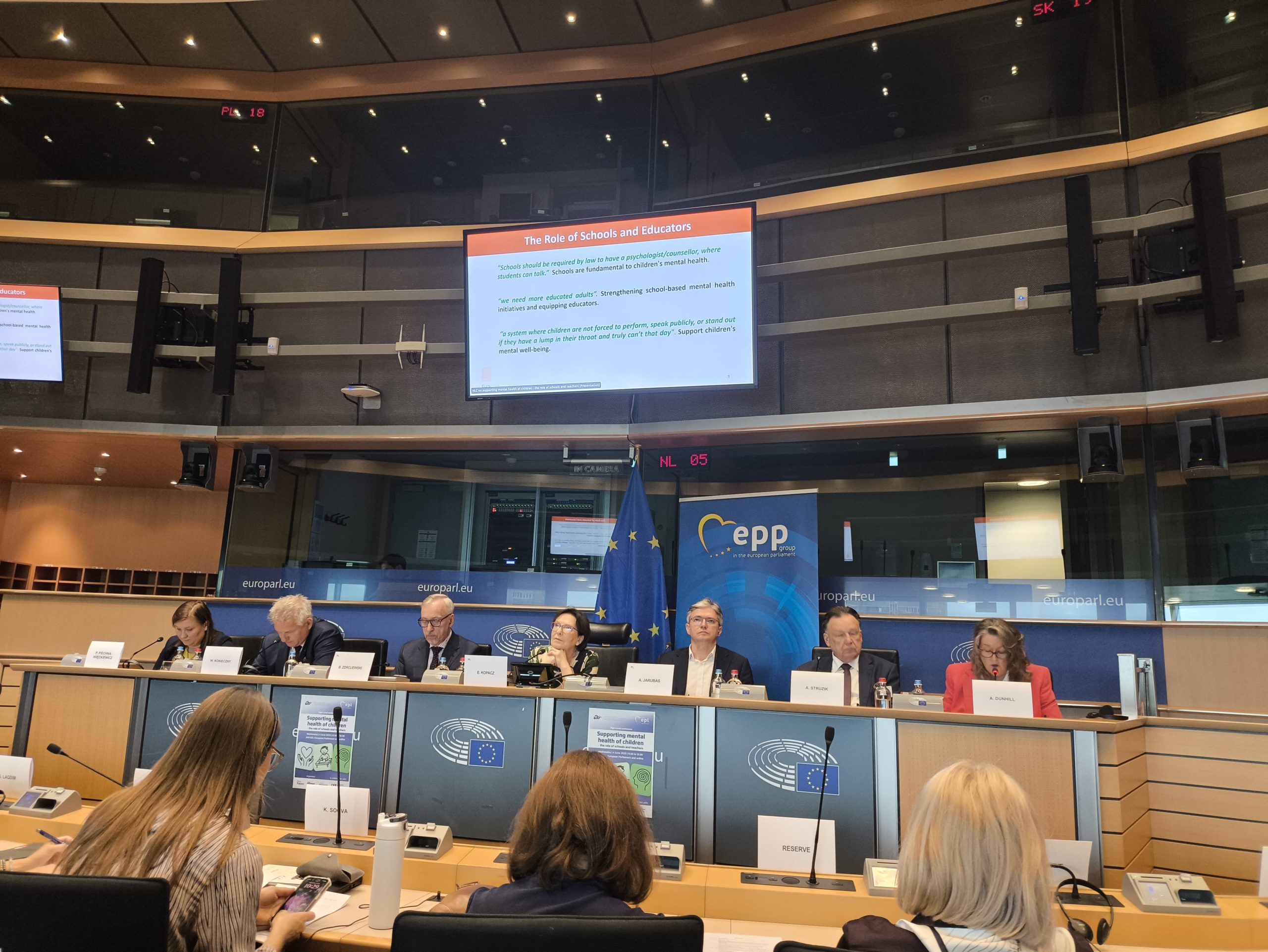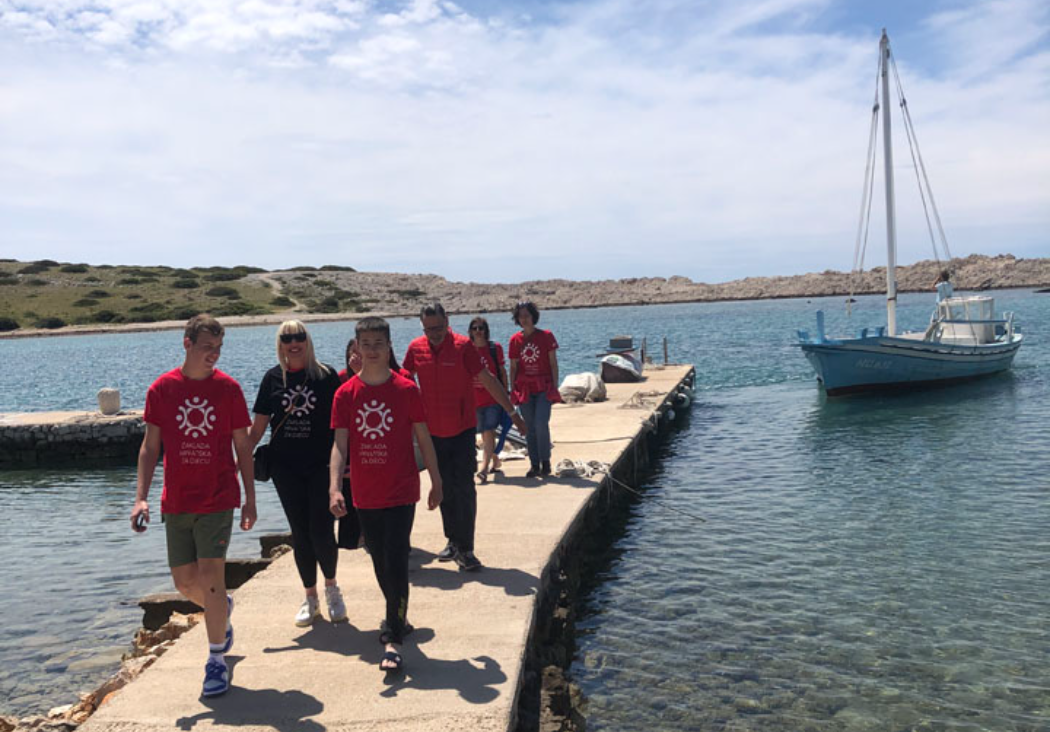Let children’s voices guide our actions on mental health
A blog by Dr. Ally Dunhill, Eurochild Director of Policy, Advocacy and Communications.
I recently had the privilege of participating in the High-Level Conference on Supporting the Mental Health of Children, held under the patronage of the Polish Presidency of the Council. The event focused on the role of schools and teachers. The conference was co-organised by Vice-President Ewa Kopacz, the European Parliament Coordinator on Children’s Rights; Adam Jarubas, Chair of the Committee on Public Health; and Bogdan Zdrojewski, Vice-Chair of the Committee on Culture and Education, and in collaboration with the Czepczyński Family Foundation.
The event brought together policymakers from the EU, national, and local levels, educators, advocates, and, most importantly, the voices of children and young people. It underscored the urgent need to address the mental health challenges faced by children and young people across Europe.
During the conference, I had the opportunity to present key findings from two of Eurochild’s most recent and impactful reports, which shed light on the state of children’s mental health across Europe and amplify the voices of children themselves.
- The ‘Children’s Mental Health Sub-report’ offers insights on children’s mental health from 30 European countries. This report outlines the progress, gaps and recommendations for each country and provides general recommendations to the European governments and European Institutions.
- ‘How Children Feel’ report is based on consultations held in November and December 2024 by four National Eurochild Forums (NEFs), involving 134 children aged 6-17 from Bulgaria, Croatia, Estonia, and Malta. It captures children’s personal experiences, concerns, and suggestions regarding mental health, offering a rare and valuable child-led perspective.
One of the most compelling aspects of the conference was the emphasis on the pivotal role that schools and teachers play in supporting children’s mental health. Their influence goes far beyond academics. Teachers are often the first to notice signs of distress and can provide early intervention or referrals to specialised services. Their daily presence uniquely positions them to create safe and nurturing environments.
“We don’t talk enough about mental health in our schools. Teachers are focused only on physical health.” - Child from Croatia
As highlighted by Vice-President Ewa Kopacz, addressing mental health requires commitment and collaboration amongst teachers, parents and students.
What made this event truly exceptional was the organisers’ deliberate focus on children’s words and voices. I have attended many conferences in the European Parliament, but few give children and young people such a prominent role. If only such an approach could become the norm rather than the exception.
“People pay attention when someone breaks a bone, but they ignore us when we are struggling mentally” - Child from Bulgaria
“If you need help, you have to wait months for an appointment. By then, things can get much worse”. – Child from Estonia
The conference also highlighted promising practices, including Poland’s introduction of a new health education course focused on mental health and addiction prevention, as well as the impact of integrating psychologists into schools. Eurochild member, the Czepczyński Family Foundation, provided an overview of emotional education at school with the ‘ABC of Emotions’. Insights from Glenn Micallef, Commissioner for Intergenerational Fairness, Youth, Culture, who emphasised that supporting mental health is key to upholding the rights enshrined in the UNCRC. A group of young people from Poland, Rat 34, provided a very insightful and powerful presentation on the potential negative impact of digital technologies on children, including destructive behaviours, eating disorders, and misuse of AI.
Throughout the conference, discussions also turned to structural reforms, such as improved data collection, increased funding for mental health programmes, and ensuring stigma-free, inclusive environments. Such changes would not merely be policy shifts; they would be lifelines for children who need support and understanding.
“I think that adults need to realise that us children, we also have mental health issues which should not be taken lightly.” – Child from Malta
According to the World Health Organisation, one in five children suffers from a mental health disorder. At Eurochild, we remain steadfast in our commitment to ensuring that every child’s right to mental health and well-being is upheld. As policymakers, educators, and advocates, we have a collective responsibility to create environments of trust and respect, where children feel seen, heard, and supported, without fear of judgment and stigma.
Let the children’s voices be our guide—not just to listen, but to act. Let them remind us that the true measure of our work is not in policy papers or speeches, but in the lived experiences of children. A big thank you to the National Eurochild Forums, your words were listened to and read. We now call on European institutions, national governments, educators, and communities to turn today’s insights into tomorrow’s actions.




